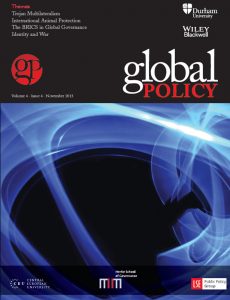The Law & Social Movements: Six Months after SOPA & PIPA
Six months ago today the U.S. Congress was in the midst of a debate over legislation that would fundamentally alter the relationship between the state, intellectual property holders, and the Internet. In opposition to the legislation, known as SOPA (House version) and PIPA (Senate version), thousands of web sites – including major sites such as Wikipedia and reddit.com – voluntarily blacked themselves out in protest. A closer examination of this incident and events that have transpired since provides insight into how...





1540-6237/asset/SSSA_Logo-RGB.jpg?v=1&s=c337bd297fd542da89c4e342754f2e91c5d6302e)